From Copenhagen to Sharm El-Sheikh Azerbaijan’s strategy of peace and cooperation
In today’s world, marked by increasing geopolitical tensions, Azerbaijan is seen in the international arena as a successful and, most importantly, stable state, confidently pursuing an independent foreign policy grounded in its national interests. This is far from an empty claim. Leading global powers recognise this, especially after Azerbaijan, through its own efforts, ended the long-standing Armenian occupation and restored its territorial integrity and sovereignty.
This is clearly demonstrated by the active participation of the head of state in international events and President Aliyev’s personal contribution to regional and global stability. Notably, in October of this year alone, the Azerbaijani leader took part in four summits across different regions and formats.
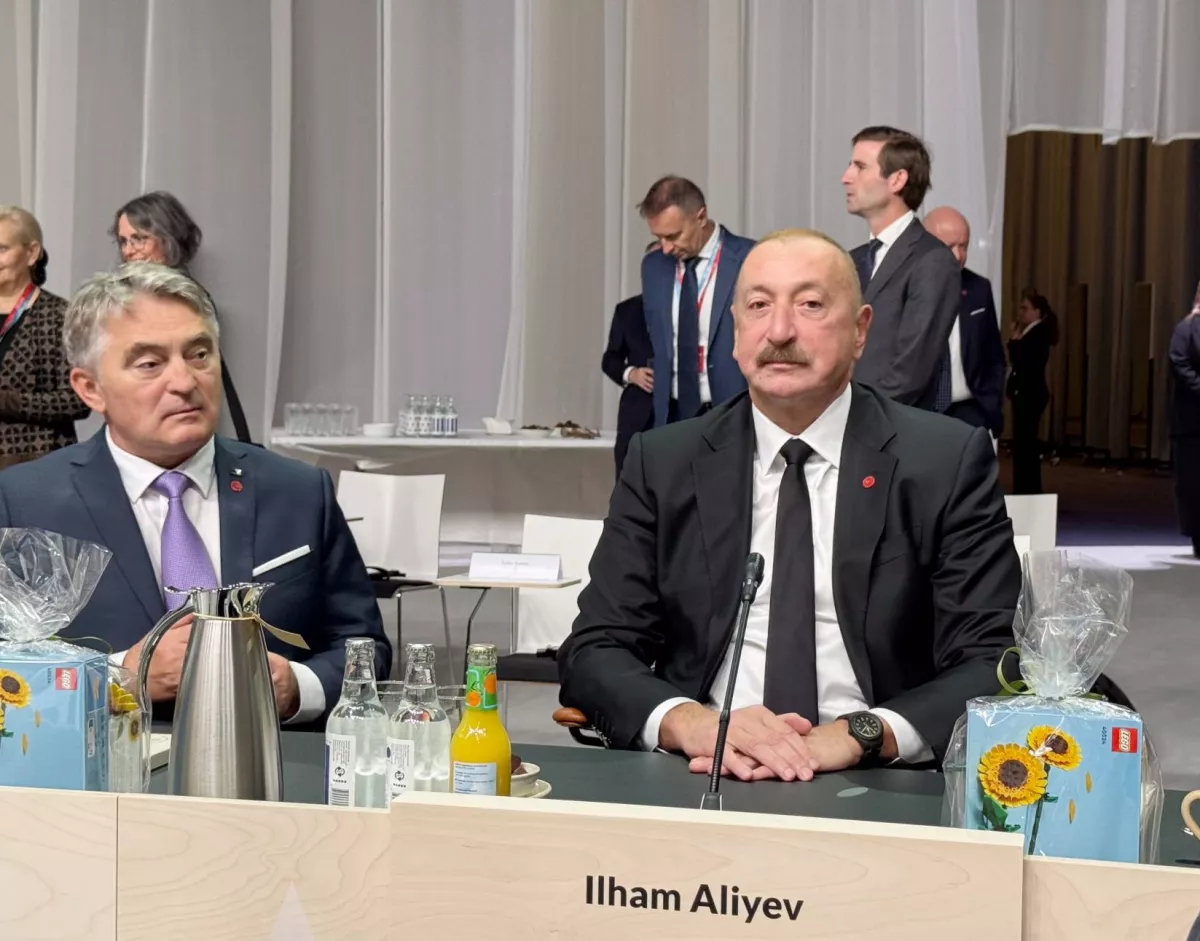
On October 2, Ilham Aliyev attended the European Political Community summit in Copenhagen, where he held meetings and discussions with representatives of the European Union and other European partner countries.
Then, on October 7, the head of state participated in the Organization of Turkic States summit in Gabala, which once again reaffirmed the solidarity and unity of the Turkic world.
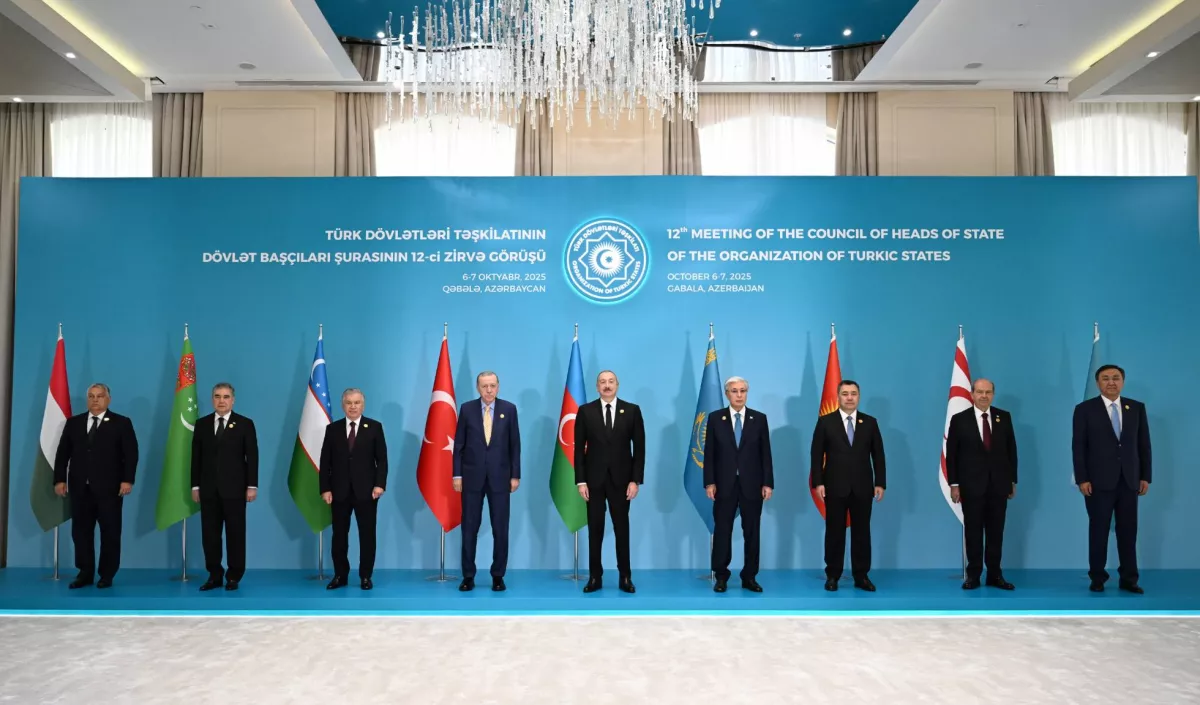
On October 9–10, the head of state visited Tajikistan, where he took part in the meeting of the Council of CIS Heads of State in Dushanbe.
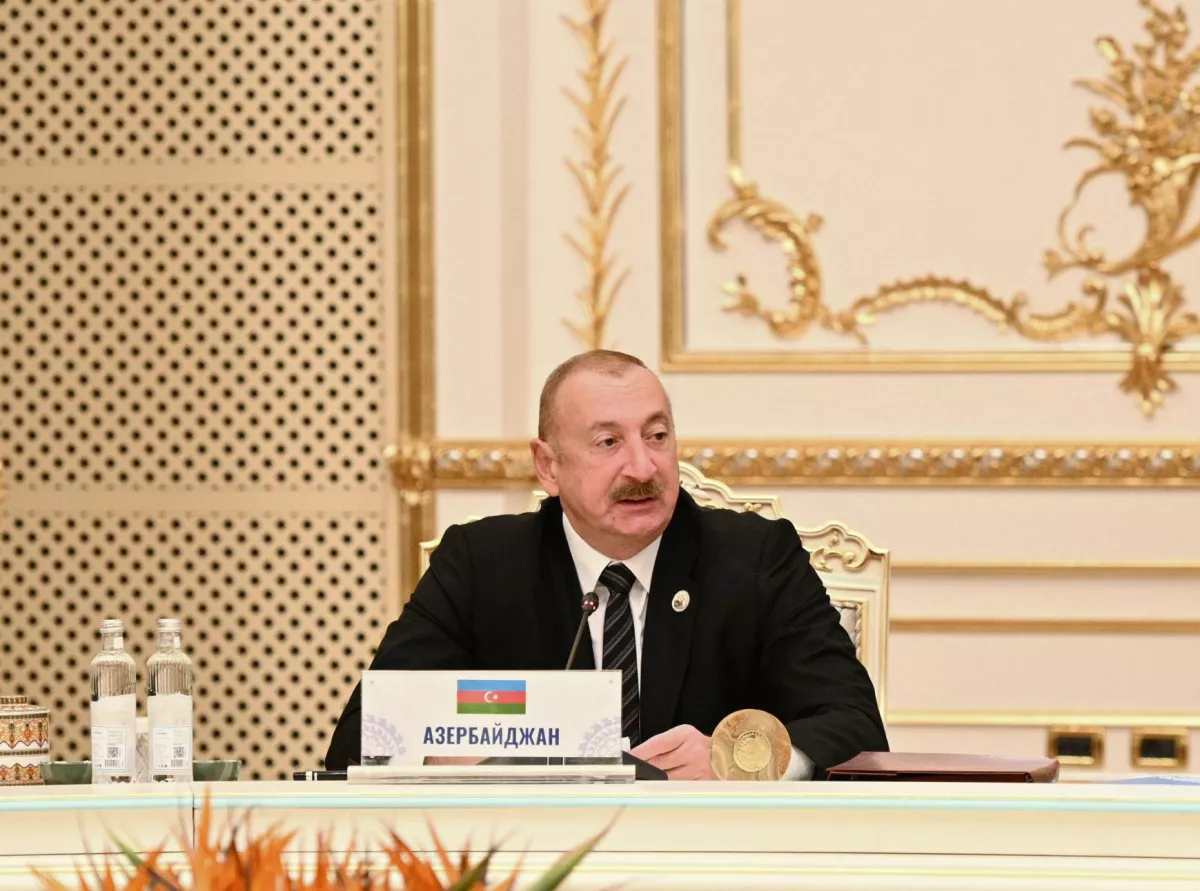
Then, on Sunday, October 12, President Aliyev arrived in Egypt on a working visit at the personal invitation of U.S. President Donald Trump and Egyptian President Abdel Fattah el-Sisi to participate in the Middle East Peace Summit, which took place on October 13.
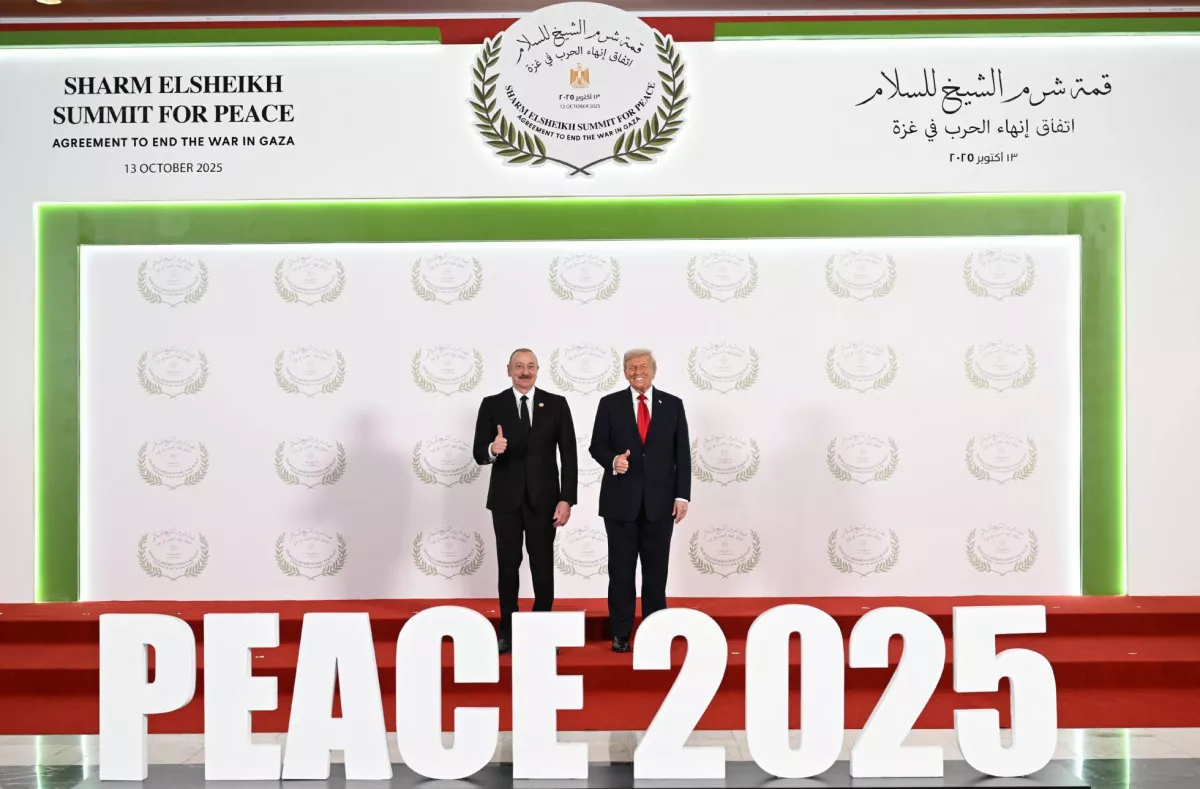
Such a busy schedule for President Aliyev is a vivid illustration of Azerbaijan’s multi-vector foreign policy, recognised today not only by regional actors but also by global powers. It is important to emphasise Azerbaijan’s key role as an energy supplier and guarantor of Europe’s energy security, with President Aliyev’s participation in the European Political Community summit further strengthening the partnership between Azerbaijan and the EU.
Notably, the Republic of Azerbaijan ranks 28th in the world in oil and gas production and possesses significant hydrocarbon reserves, making it a major energy partner for Europe and a key regional player. European countries, in turn, remain the largest market for Azerbaijani gas, which is currently purchased by ten European nations—Italy, Greece, Bulgaria, Romania, Hungary, Serbia, Slovenia, Croatia, Slovakia, and North Macedonia—eight of which are EU member states.
Azerbaijan plays a key role in Europe’s energy strategy through the Southern Gas Corridor, which includes the Trans-Adriatic (TAP) and Trans-Anatolian (TANAP) pipelines, delivering Azerbaijani gas to the Old Continent and helping reduce European consumers’ dependence on Russian energy sources. In the context of geopolitical instability and the war in Ukraine, this aligns directly with the interests of the EU. It is no coincidence that on July 18, 2022, during the signing ceremony of the Strategic Partnership Agreement, European Commission President Ursula von der Leyen called Azerbaijan a “reliable partner” of the EU. Notably, the 2028 European Political Community Summit is scheduled to take place in Baku.
Within the October agenda, special attention should also be given to President Aliyev’s meetings with several European leaders, including French President Emmanuel Macron and the Presidents of the European Council and Commission, António Costa and Ursula von der Leyen, held in Copenhagen. Importantly, these meetings were initiated by the European leaders themselves, highlighting the high level of respect for the Azerbaijani president.
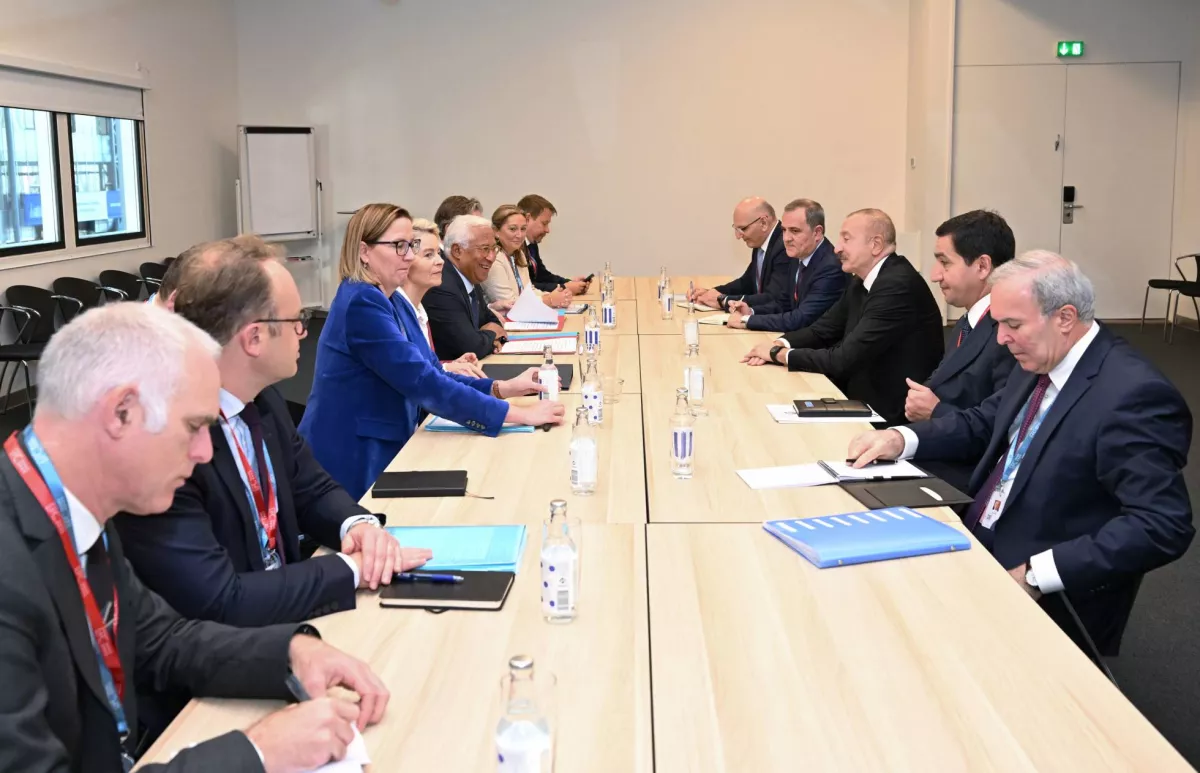
Special attention should be given to President Aliyev’s participation in the Peace Summit in Sharm El-Sheikh, Egypt. It should be noted that Azerbaijan has long strengthened its role in the Middle East region, including through agreements on natural gas supplies to Syria. The invitation extended to Ilham Aliyev by the leaders of the United States and Egypt to the summit is a testament to the growing recognition of Azerbaijan’s authority and the close personal relations established between the heads of the three countries. This is vividly reflected in the words of Donald Trump, spoken to Aliyev during a dialogue at the official reception on the occasion of the 80th session of the UN General Assembly: “I'm very proud of you [...] You're amazing people. You're leaders at the highest level.”
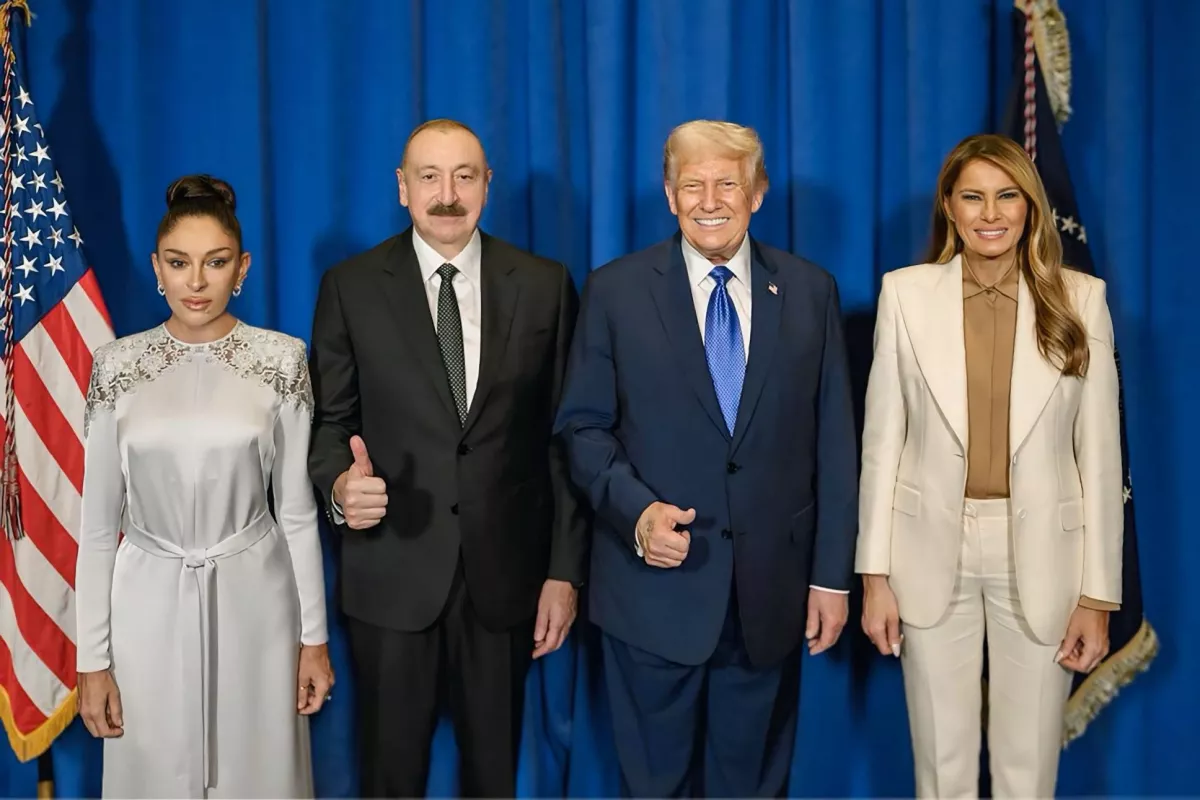
At the same time, the Republic of Azerbaijan plays a key role in the Organization of Turkic States, where, alongside Türkiye, it contributes significantly to strengthening the solidarity of peoples united by common culture, language, and history. One example of this is the Organization of Turkic States summit in Gabala, during which President Aliyev, emphasising the critical importance for Turkic countries of factors such as security, transport and communications, hydrocarbon exports, and “green” energy, made two important proposals: to hold joint military exercises of member states in Azerbaijan in 2026, and to celebrate the 100th anniversary of the first Turkology Congress, organised in Baku in 1926.
The head of state of Azerbaijan also highlighted the growing global influence of the Organization of Turkic States (OTS). “Today, the Organization of Turkic States is not just a platform for cooperation; it is emerging as one of the serious geopolitical centres,” the president said. The Gabala Declaration, signed at the conclusion of the summit, once again reaffirmed the commitment to strengthening solidarity within the Turkic world in the years ahead.
In the context of Azerbaijan’s multifaceted foreign policy, it is also worth noting the balanced relations established with other countries in the post-Soviet space. This was demonstrated by Ilham Aliyev’s participation, at the invitation of Tajikistan’s leader Emomali Rahmon, in the meeting of the Council of CIS Heads of State, held in Dushanbe.
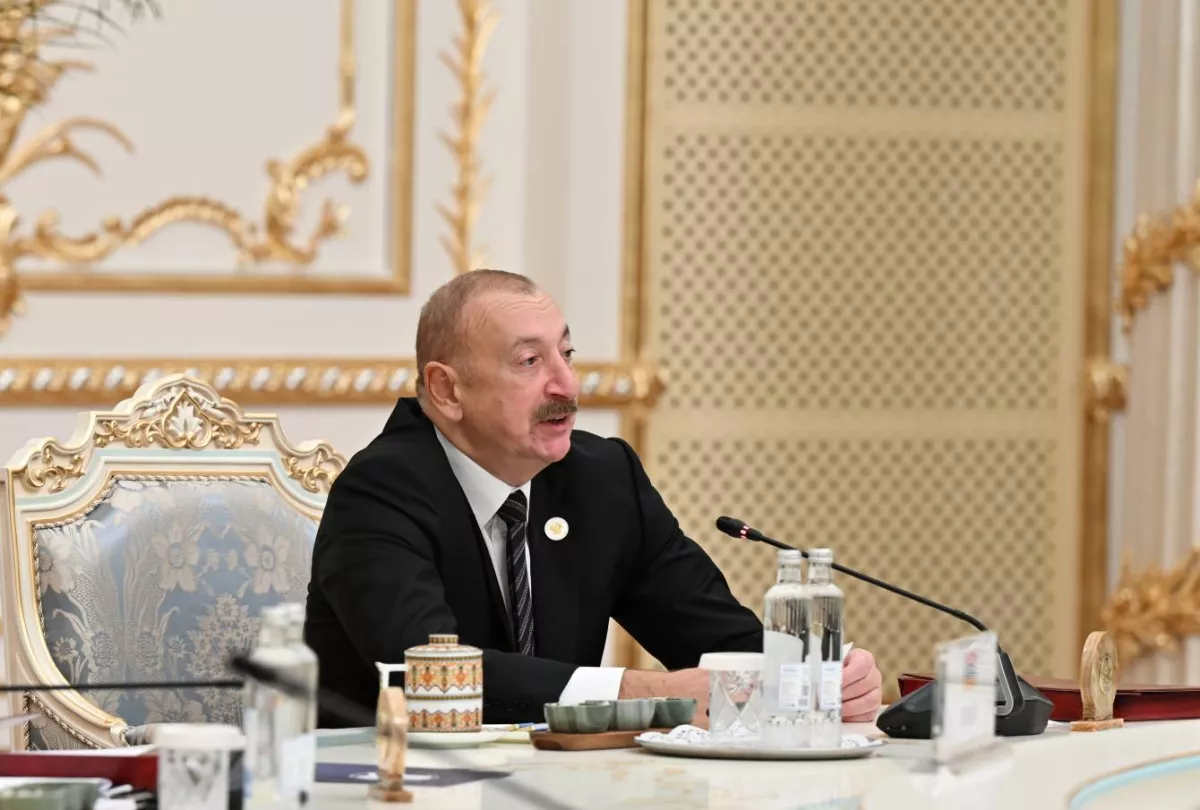
In his address at the summit, the head of state of Azerbaijan emphasised the importance of humanitarian ties, citing the III CIS Games, which were recently held in Azerbaijan, as an example. He underscored that such events strengthen friendship and cooperation across the CIS and beyond, fostering relationships based on equality, mutual interests, and respect.
In conclusion, it can be stated with full confidence that it is precisely the balanced and multi-vector foreign policy of the Azerbaijani head of state, together with the personal authority of President Ilham Aliyev—whose words are always matched by action—that has elevated Azerbaijan’s standing in the international community. This approach has strengthened the country’s global image and status, facilitated the implementation of transnational projects, and promoted Azerbaijan’s integration into the system of economic and political interests of the world’s leading powers.








